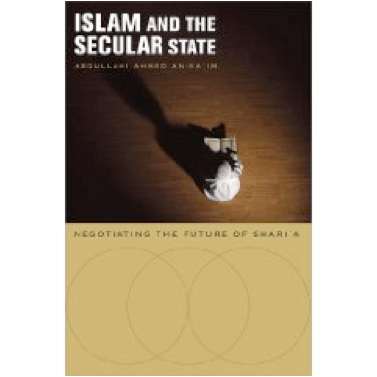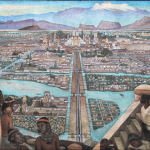By Mustafa Akyol - May 18, 2009
 Is Islam compatible with the idea of separation of state and religion? Some Muslims, insist that Islam is supposed to define both religion and state. Some non-Muslims agree, arguing that democracy cannot flourish in any Islamic society.
Is Islam compatible with the idea of separation of state and religion? Some Muslims, insist that Islam is supposed to define both religion and state. Some non-Muslims agree, arguing that democracy cannot flourish in any Islamic society.
Yet one should remember that there is more than one form of Islam-and, for that matter, more than one form of secular state. The American model, with its emphasis on freedom of religion, is notably different from the French laïcité, with its focus on freedom from religion.
In his new book, Islam and the Secular State, professor of law Abdullahi Ahmed An-Na'im argues that a secular state that respects religious freedom is compatible with and, indeed, necessary for Islam. "As a Muslim, I need a secular state," he summarizes in a nutshell, "in order to live in accordance with Shari'a out of my own genuine conviction and free choice, personally and in community with other Muslims."
An-Na'im's advocacy for Shari'a is notable, because many see the concept of Islamic law as the enemy of the secular state. Secularists in Turkey, for example, often march chanting "Down with Shari'a, long live laïcité" and ask pious Muslims to abandon the idea of Shari'a altogether. In the West, too, Shari'a is often considered a set of outdated and brutal laws that Muslims want to impose on non-Muslims.
There is no doubt that many Muslims do understand Shari'a in this authoritarian sense. But An-Na'im argues that Shari'a needs to be understood as a set of rules and principles that refer to the individual and the community but not the state. Indeed, whenever a state tries to impose Shari'a, what it really does is choose from one of its many possible interpretations and thus assert a temporal authority in the name of God. "All law or legislation that is enforced through state institutions is secular," as he puts it, "even when drawn from or based on Shari'a principles."
An-Na'im thus challenges the idea of an Islamic state, which he defines as a "postcolonial innovation based on a European model of the state . . . ." Premodern Muslim governments, he notes, did not define themselves as Islamic states, and, although they claimed some Islamic legitimacy, they did not take a single form of Shari'a and impose it as the law of the land. Lawmaking in the traditional Muslim world was the job of religious scholars, who were often independent from the political authority-which helped the evolution of law and limited the powers of the executive. In most Islamic lands, Christians and Jews were granted the right to live by their own legal tradition. Premodern Islamic polity offered several legal traditions to choose from.
The postcolonial Islamic state rejected this pluralistic tradition, claiming to know what Shari'a is and then imposing it on all citizens through a dictatorial government. It is no accident that one of the main advocates of the modern Islamist movement, Sayyid Abul Ala al-Maududi, the founder of Pakistan's Jamaat-i-Islami, openly said in the 1930s that the "Islamic state must be totalitarian, akin to the communist or fascist states."
If al-Maududi wanted to join Islam and totalitarian politics, it is possible to join Islam and democratic politics as well. An-Na'im actually thinks that this would be "more consistent with Islamic history than is the so-called Islamic state model proposed by some Muslims since the second quarter of the twentieth century."
But make no mistake: An-Na'im insists that he is in favor of a secularized state, not a secularized society. He opposes the idea of erasing religion from the public square. An-Na'im suggests, Islam's rule and principles will have a justified role in democracy and help sustain it. "When observed voluntarily," he writes, "Shari'a plays a fundamental role in shaping and developing ethical norms and values that can be reflected in general legislation and public policy through the democratic process." However, is Shari'a capable of living under the protection, but also the restraints, of a democratic state? And does this then necessitate the need for Shari'a reform? An-Na'im's answers are yes.
The goal, An-Na'im returns to throughout Islam and the Secular State, is separation of Islam and the state, but not separation of Islam and politics. Since there are believers in society, religion will undoubtedly influence politics. The only question is how.
What makes An-Na'im's Islam and the Secular State particularly valuable is not just its scholarship but also its committed religiousness. "If I, as a Muslim, am faced with a stark choice between Islam and human rights," he frankly notes, "I will certainly opt for Islam."
Mustafa Akyol is a Turkish writer and journalist. A longer version of this modified article originally appeared in FirstThings. Copyright is held by FirstThings.
1/1/2000 5:00:00 AM




